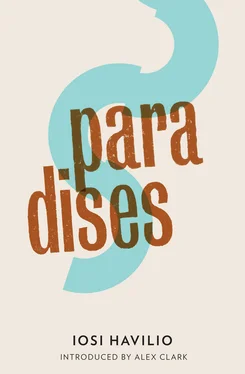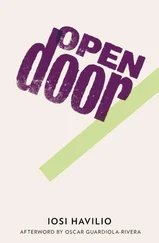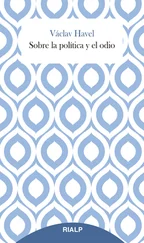Iosi Havilio - Paradises
Здесь есть возможность читать онлайн «Iosi Havilio - Paradises» весь текст электронной книги совершенно бесплатно (целиком полную версию без сокращений). В некоторых случаях можно слушать аудио, скачать через торрент в формате fb2 и присутствует краткое содержание. Год выпуска: 2013, Издательство: And Other Stories, Жанр: Современная проза, на английском языке. Описание произведения, (предисловие) а так же отзывы посетителей доступны на портале библиотеки ЛибКат.
- Название:Paradises
- Автор:
- Издательство:And Other Stories
- Жанр:
- Год:2013
- ISBN:нет данных
- Рейтинг книги:3 / 5. Голосов: 1
-
Избранное:Добавить в избранное
- Отзывы:
-
Ваша оценка:
- 60
- 1
- 2
- 3
- 4
- 5
Paradises: краткое содержание, описание и аннотация
Предлагаем к чтению аннотацию, описание, краткое содержание или предисловие (зависит от того, что написал сам автор книги «Paradises»). Если вы не нашли необходимую информацию о книге — напишите в комментариях, мы постараемся отыскать её.
is an almost perfect novel." — Albert Camus's
reimagined with a female lead in in twenty-first-century Buenos Aires.
Recently widowed, a young woman leaves the countryside for Buenos Aires with her four-year-old son where she seeks to build a new life for herself. She finds work in the zoo and moves into the human zoo of a squatted tower block at the invitation of one of its residents, to whom she acts as nurse, giving morphine injections.
Paradises — читать онлайн бесплатно полную книгу (весь текст) целиком
Ниже представлен текст книги, разбитый по страницам. Система сохранения места последней прочитанной страницы, позволяет с удобством читать онлайн бесплатно книгу «Paradises», без необходимости каждый раз заново искать на чём Вы остановились. Поставьте закладку, и сможете в любой момент перейти на страницу, на которой закончили чтение.
Интервал:
Закладка:
At around six, nearly closing time, Esteban appears, the vet in charge of the reptiles. A skinny, bald guy. Yessica introduces us. My first impression is pleasant: frank eyes and babyish skin. During the short time he spends coming and going along the aisles giving instructions to a boy who I suppose must do the dirty work — clean the cages, feed the animals, wash them — I think about approaching Esteban but I don’t know how to. I’d like to tell him, he has no reason to know, that I was going to be a vet too. As if I need to make it clear that I’m not here by chance, like in a kiosk or tollbooth. Luckily, I never find the right moment.
At the end of the shift — working days aren’t days, they’re shifts — in the changing room, as I swap my uniform for my street clothes, I feel as though I’m in a film. Yessica undresses at my side, she walks around in bra and pants as if unintentionally, her body firm, plastic, bulky. Without looking at me, she chats to another girl about a cream for varicose veins.
When I arrive at the Fénix, Iris and Simón are watching television in the kitchen, a programme with water games. How was it? Fine, strange, I almost got bitten by a viper, I say. Iris acknowledges my joke by spitting out one of her Slavic sniggers. Simón is on good form, even better than when he’s with me. We go to the shop, I buy tomatoes, a bag of rice and two tins of tuna.
During the night, an unexpected wind gets up which brings us some relief. In the courtyard, with a slowly warming beer, Iris tells me stories about snakes. Her aunt Lena became rich all of a sudden, thanks to perestroika, when her husband started to dance in petrol, that’s what Iris says and I can’t help imagining them dripping in black goo in the middle of a nightclub dance floor. Her aunt, who had always been a worker, didn’t know what to do with the money. She got bored. First she became obsessed with tattoos and had about a hundred done. Everywhere, arms, legs, back. Even on her arse, she says and laughs loudly. Then she began to collect pets, from the conventional — chihuahuas, Siamese cats, hamsters — to the exotic — tarantulas, frogs and pythons. Pythons? Yes, yes. Once Iris accompanied her aunt to a fair on the outskirts of Moscow, a neighbourhood for the poor, she calls it, to buy mice. Three or four, depending on the size, which she, Aunt Lena, tied head to tail with thread so that the python wouldn’t get in a muddle when the time came to eat them. As he grew, the beast became voracious. So, not to save money but for the sake of convenience, Aunt Lena chose to set up a rat nursery in the laundry of the apartment, one of the most luxurious in Moscow. Listening to Iris makes me think of Esteban and I decide that next time I see him I’m going to mention it. I find it hard to believe that the zoo would feed animals with rats. But it could be true.
With her anecdote about Aunt Lena pursuing the snake down the stairs of the apartment block, Iris reveals a side of herself I never suspected, she’s quite the dramatic raconteur. It would seem that through a maid’s negligence, the python escaped from the apartment. That Aunt Lena went round knocking on all the neighbours’ doors, floor by floor, all of them rich like her, businessmen, artists, mafiosi, diplomats, and when she got to the ground floor, she found it writhing in a corner of the staircase about to be attacked by the caretaker with an axe. That Lena pushed the man away and embraced her pet, sheltering it under her silk pyjamas and that a woman fainted right there. Lena apologised and got into the lift. Izviní, izviní, repeats Iris, imitating her aunt, and runs out to the corridor leading to the patio with a tea towel under her blouse like an imaginary serpent. She comes back in shaking her head and rounds off the story with a snotty guffaw, just like the roar of a bear.
Six
Sleep is impossible. The bed is beginning to sink in the middle from so much tossing and turning and I’m going with it. The hours pass, the fatigue grows, as does my state of awareness. The only parts that manage to drift off, very much in spite of me, are my arms and legs, in turn, left arm right leg, right arm left leg. In search of sleep, I masturbate. Gentle strokes, lethargic, more consolation than masturbation. Nothing, the insomnia remains unscathed. I sit up in bed, my feet dangling, invisible in the darkness, I count to ten and feel my way out of the room to entertain my wakefulness.
I go into the kitchen without turning on the light. I get myself a glass of cold water, then another, and a third. In the half-light, I distinguish the outline of the furniture, still strange to me. When I’m about to leave, I see a pack of cigarettes on top of the fridge and I grab it without hesitating. It’s a box of Jockey Lights with a small lighter held in place by the cellophane. It occurs to me to try smoking, just to see. In passing, I notice the wall clock with its aged phosphorescent hands: three twenty.
In the courtyard, I sit on the bench under our bedroom window. I remove a cigarette, sniff it, bring it to my lips and light it. I take one, two, three drags but it sickens me immediately, a rancid taste invades my mouth, followed by nausea. I can see that once you lose the habit, you lose the taste for it. I stub out the cigarette in the dry soil of the flower bed next to me and look at the scant piece of sky cut out between the buildings, a geometric, pathetic sky. Not a single star. Suddenly, a movement between the leaves. From the creeper at the back, a swift mouse climbs to the gutter. I can see it clearly because, once it has stumbled through the foliage and attracted my attention with the noise, it passes through a stretch of yellow light. Country rats are definitely much fatter and more ungainly. Finally I fall asleep. I have a very strange dream about Iris, gnomes and pianos.
I wake to Simón beating at my knee as if it were my front door. I open my eyes and we exchange bemusement; he won’t understand what I’m doing outside, sleeping sitting up, and I can’t explain how he has managed to get up, leave the room and find me without causing a scene. It’s starting to get light, I reckon it must be between five and six. Simón offers me his hand, it takes me a few moments to accept it, and I let him lead me towards bed, his bed, which we’re going to share for a few more hours. First, without entering the kitchen, I lob the pack of Jockeys I’m still clutching. I make the shot and the cigarettes land on top of the fridge, not far from their original position.
A hot morning follows, although not quite as bad as the last few days. A tumultuous breakfast: shouts, arguments about a bar of soap, a chorus of sirens passing at top speed and a whistling kettle that no one silences. We take Simón to the little plaza round the corner from the hotel. A small island of cobblestones and palm trees contained between two streets. On one of the benches, a drunk with flowers. He is wrapped up to his nose as he sleeps, a real drifter. At his feet, a mattress of long-stemmed roses in full bloom with loosening petals. Florists’ rejects or stolen from the market. There are also carnations, chrysanthemums and several others I can’t identify. It’s as though the previous night, before his latest inebriation set in — two wine crates remain as proof — the man had arranged his own homage, a foretaste of his funeral. Simón watches him too, we share the interest and intrigue.
We take refuge in a small children’s play park with a sandpit, a slide and a tubular frame. There’s an inescapable smell of urine. In the corners, on the cement, on the railings too, I can see traces of piss, its ochre stamp. Simón pulls a disgusted face but doesn’t complain so I resign myself, thinking that it will be fifteen, twenty minutes at most, and that it’s just a matter of getting used to it. In a while, another boy arrives with an arsenal of outdoor toys, different types of spades, rakes, moulds and three different sizes of bucket. He is accompanied by a lady wearing a lot of make-up, hair the colour of fire; I assume she’s his grandmother. The boy lays out all his tools and starts digging a well. Simón prowls around him, not daring to make friends until the other boy throws him a spade, which almost catches him in the eye, a form of invitation. The exchange doesn’t last long. Not two minutes pass before the woman, who had been hovering at the sidelines smoking a long, thin cigarette, bursts into the play area and starts gathering up all the toys, complaining about the smell. This is a sewer, she says, throwing me a glance over her shoulder, I’m not sure whether seeking assent, so that we too will withdraw, or blaming us, as if we were the ones that had peed everywhere.
Читать дальшеИнтервал:
Закладка:
Похожие книги на «Paradises»
Представляем Вашему вниманию похожие книги на «Paradises» списком для выбора. Мы отобрали схожую по названию и смыслу литературу в надежде предоставить читателям больше вариантов отыскать новые, интересные, ещё непрочитанные произведения.
Обсуждение, отзывы о книге «Paradises» и просто собственные мнения читателей. Оставьте ваши комментарии, напишите, что Вы думаете о произведении, его смысле или главных героях. Укажите что конкретно понравилось, а что нет, и почему Вы так считаете.











